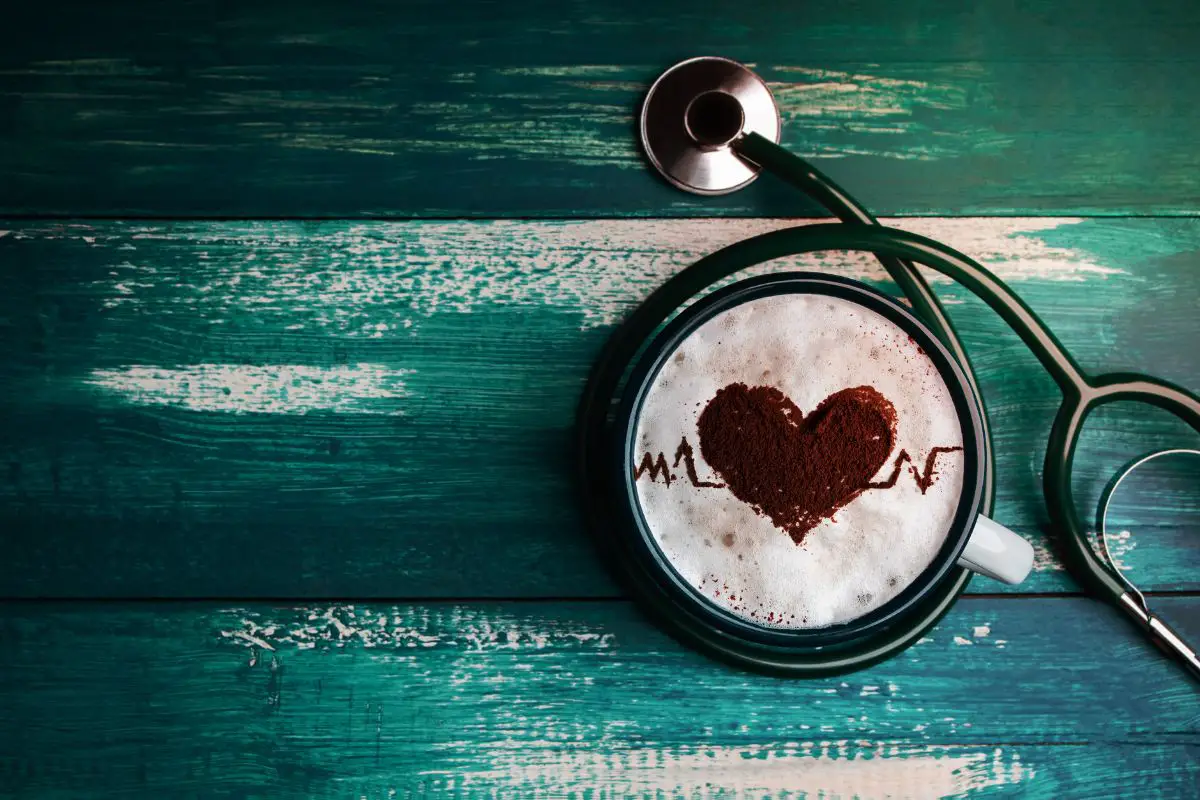Coffee is a stimulating drink with lots of health benefits. It also boosts our mood and speeds up our metabolism making it an ideal beverage to have at any time of the day.

However, when you ask many people why they consume coffee, they will tell you it’s for the caffeine content. This antioxidant in coffee beans enhances our physical and mental performance.
This factor always encourages us to consume lots of coffee and can even lead to excessive coffee consumption.
While enjoying the stimulatory effects of caffeine, we may forget that taking too much of it can harm our systems.
That’s why you’ll find many coffee drinkers taking other caffeinated beverages and foods such as energy drinks, breakfast cereals, hot chocolate, candy bars, and ice cream in addition to their coffee.
Unfortunately, this can cause caffeine intoxication, a severe side effect of caffeine consumption that can cause cardiovascular ailments. How does this happen?
How the Heart Reacts to Caffeine
The only way to understand how coffee affects our cardiovascular health is by checking how it affects its functions.
This coffee finds its way to the central nervous system and immediately increases your heart rate. Its effects on the heart are apparent within 15 minutes of taking coffee.
In fact, according to medical experts, our heart rate increases by three beats a minute after caffeine consumption. This causes blood flow to speed up, an effect that increases the more coffee you drink.
These effects of caffeine on the heart can last up to six hours after you take coffee. So if you consume too much caffeine, it can strain the heart tremendously, which is why many heart problems are associated with caffeine consumption.
Harmful Effects of Excessive Caffeine Consumption on the Heart
The detrimental effects of coffee only occur if you consume excessive amounts of coffee. These side effects are an increased heart rate, anxiety, panic attacks, and dizziness.
These symptoms can cause severe problems in your cardiovascular system, such as atrial fibrillation. This is an altering of the heart rhythm that occurs in the heart’s upper chambers. This heart issue often leads to severe heart palpitations that, if left unchecked, can cause kidney failure.
Caffeine’s effect on the nervous system can also cause high blood pressure. This form of high blood pressure can damage the arteries, interfering with the flow of blood to the brain and heart, eventually leading to a stroke or heart attack.
The way you consume your coffee can also have a negative effect on your heart. For example, drinking milk-based coffee with lots of sugar, milk, and cream can increase your cholesterol, exposing you to heart problems.
Therefore, consider using dairy-free milk options in your coffee to lower its fat content. And instead of consuming too much caffeine, consider finding other ways to boost your metabolism, mood, and energy that do not expose you to cardiovascular health risks.
How to Reduce Caffeine Consumption to Improve Your Cardiovascular Health
A great way to boost your adrenaline levels without consuming caffeine is by performing cardio exercises. This will significantly improve your heart functions and alertness, reducing the need for caffeine.
You may also take coffee beverages that contain less caffeine, such as decaf, to keep your caffeine intake in check. Or consider replacing your regular cup of drip coffee with a shot of espresso, which contains half the amount of caffeine.
Remember to reduce the amount of sugar, milk, and cream you add to your coffee to avoid problems with cholesterol that can worsen your heart health.
Also, watch your intake of other foods and beverages that contain caffeine, such as chocolate and energy drinks.
Taking an excessive amount of these foods can endanger your health, not only because of their caffeine content but also because they are highly calorific.
If these solutions fail to improve the heart issues you experience because of taking caffeine, switch to non – caffeinated beverages such as decaf coffee and herbal teas.
Note that abruptly reducing your caffeine consumption can cause serious health problems. Some examples are brain fog, stomach upsets, jitters, headaches, and other signs of caffeine withdrawal.
So if you choose to lower your coffee consumption or switch to non – caffeinated beverages, do it gradually.
Conclusion
Now you know how caffeine affects the heart, and why not take it in large amounts? The next time you drink coffee and notice a change in your heart rhythm, consider reducing your consumption.
The recommended daily caffeine consumption is 400 mg which translates to 4 cups of coffee. Anything beyond this leads to caffeine intoxication, which exposes you to health risks.
Therefore, if you suffer from heart problems, consider limiting your coffee intake to 2 cups or 200 mg of caffeine daily. It could save you from heart disease and problems with other vital organs in your body, such as the kidneys.
Related article: